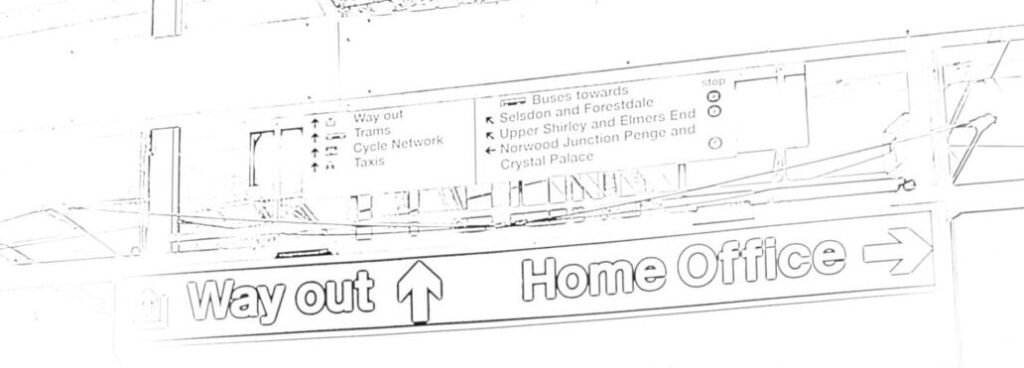
New Statement of Changes to UK Immigration rules 7th December 2023
More changes to UK Immigration rules. New Statement of Changes to Immigration rules 7th December 2023 has been published today. It includes changes to EU Settlement Scheme (EUSS), changes to visitor rules and changes to Youth Mobility Scheme. There are also minor changes to some other immigration categories.
The changes to the rules are due to come into force between the following dates: from 7th December 2023 to 31st January 2024, as stated by the Home Office in the Statement of Changes for each change.

Changes to the EU Settlement Scheme (EUSS) – UK immigration rules
The EUSS enables EU, other European Economic Area and Swiss citizens living in the UK by the end of the transition period on 31 December 2020, and their family members, to obtain the UK immigration status they need to continue living in the UK. The changes in respect of the Immigration Rules for the EUSS in Appendix EU are as follows:
• To reflect the addition of Appendix Returning Resident to the Rules by Statement of Changes HC 1780. That Appendix applies where a person whose indefinite leave to enter or remain under the EUSS has lapsed and they wish to return to and settle in the UK.
• To prevent a valid application to the EUSS as a joining family member being made by an irregular arrival to the UK (which will include small boat arrivals) as well as by an illegal entrant to the UK, thereby reinforcing the Government’s approach to tackling illegal migration.
• To require a person in the UK as a visitor to make any application to the EUSS as a joining family member within three months of their arrival (subject to reasonable grounds for any delay in applying). This is consistent with the temporary protection of rights conferred on them by the Citizens’ Rights Agreements for three months from their arrival in the UK.
• To enable limited leave to enter or remain granted under the EUSS to be curtailed (subject to a right of appeal) where it is proportionate to do so where the person never met the requirements of Appendix EU.
Changes to the Visitor Rules
Amendments to Visitor permitted activities are being made.
Home Office is amending the permitted intra-corporate activities to remove the prohibition on working directly with clients and are introducing a requirement that client facing activity is incidental to the visitor’s employment abroad and does not amount to the offshoring of a project or service to their overseas employer.
Home Office is making clear that visitors are permitted to work remotely whilst they are in the UK but that remote working must not be the primary purpose of their visit.
Home Office is allowing flight crew to come to the UK as part of a Civil Aviation Authority approved wet lease arrangement between the months of March and October. This will incorporate an existing concession currently operated outside of the rules into the Visitor rules.
Home Office is allowing scientists, researchers and academics to conduct research in the UK as part of their visit. Currently scientists and researchers can only conduct independent research, and academics can only conduct research for their own purposes if they are on sabbatical leave from their home institution. These changes will not apply to academics applying for a 12 month visit visa, or if they are applying to extend their permission from within the UK.
Home Office is expanding the permitted activities for legal professionals.
Home Office is allowing speakers at conferences to be paid for this activity, by including this in the list of Permitted Paid Engagements (PPE).
Home Office is moving the provisions of the Permitted Paid Engagement Visitor route into the Standard Visitor route. This means all visitors will be able to undertake PPE without the need for a special visa. However, visitors intending to undertake PPE must still have arranged their PPE activity prior to travel to the UK, and this must be undertaken within 30 days of arrival in the UK as a Visitor.
Changes to travel document requirements for school groups visiting the UK from France
These changes allow children aged 18 and under, studying at a school in France, to visit the UK on an organised educational trip without passports or visit visas, as is currently required on all other visits to the UK.
EU/EEA/Swiss national children aged 18 and under, who are resident and studying at a school in France, can now use national identity cards to visit the UK on an organised school trip instead of passports.
The changes also provide for visa national children aged 18 and under, who are resident and studying at a school in France, to be able to visit the UK on an organised school trip without obtaining a visit visa (but we will still require passports of this cohort).
Changes to the Youth Mobility Scheme – UK immigration rules
The UK has negotiated a YMS arrangement with Uruguay which is being added to the list of countries and territories participating in this route and the Rules are being amended to reflect the requirements for Uruguayan citizens coming to the UK.
Changes are being made to reflect that the UK’s existing reciprocal, bilateral arrangements with Japan and the Republic of Korea have been enhanced; the total number of allocated places for nationals of these countries who can travel to the UK and vice versa under the Scheme will increase. For nationals of the Republic of Korea the age range is also being expanded from 18-30 to 18-35. The requirement to obtain an invitation to apply for Japanese and South Korean citizens is being removed.
Introduction of new Appendix Bereaved Partner – UK immigration rules
Appendix Bereaved Partner replaces existing provisions for Bereaved Partners and their dependent children in Part 8, Appendix FM and Appendix Armed Forces of the Immigration Rules.
Changes from provisions in the current rules are:
• The provisions for a dependent child of a Bereaved Partner are included in Appendix Bereaved Partner.
• The general grounds for refusal in Part 9 of the rules are applied to this route.
Introduction of new Appendix Victim of Domestic Abuse – UK immigration rules
Appendix Victim of Domestic Abuse replaces existing provisions for Victims of Domestic Abuse and their dependent children in Part 8, Appendix FM and Appendix Armed Forces of the Immigration Rules.
Changes from provisions in the current rules are:
• Appendix Victim of Domestic Abuse will allow victims of domestic abuse and their dependants to apply for entry clearance from outside the UK, where they have been abandoned overseas and it is accepted that the abandonment overseas is part of the domestic abuse.
• The overseas and in country application for settlement as a Victim of Domestic Abuse is subject to a fee waiver based on destitution. • A person who was last granted permission as a partner under Appendix FM, Part 11, or Appendix Family Reunion (Protection) of a person with permission as a refugee will be eligible to apply for settlement as a Victim of Domestic Abuse.
• The provisions for a dependent child of a Victim of Domestic Abuse are included in Appendix Victim of Domestic Abuse.
• The general grounds for refusal in Part 9 of the rules are applied to this route.
Introduction of new Appendix Statelessness
Appendix Statelessness replaces existing provisions for Stateless Persons in Part 14 of the Immigration Rules.
Changes are being introduced which affect partners and children of a Stateless Person. They include: • A partner or child will not be able to apply for entry clearance, permission to stay or settlement under Appendix Stateless from the 16 January 2024.
• Where a partner or child of a Stateless Person are not themselves stateless or are overseas, they may apply to come to or stay in the UK under the family provisions in Appendix FM. The existing provision in Appendix FM have been amended to allow a Stateless person to sponsor a partner and dependent child. Those applying under Appendix FM will need to pay the application fee, or be granted a fee waiver, as well as meet the relevant partner or child requirements.
• Partners or children who currently have permission under Part 14: Stateless Persons will continue to be able to extend their permission or settle in the UK under those provisions.
Other changes allow Stateless applicants to combine time on other routes that allow an applicant to qualify for settlement after a 5 year qualifying period. To combine time on other routes the applicant must not have entered the UK illegally and must have had permission on the stateless route for at least 1 year at the date of application for settlement.
Minor Changes to Temporary Work routes and some other immigration categories
Some changes to Appendix Children are being made to include the following routes: Appendix Bereaved Partner, Appendix Temporary Work – Creative Worker, Appendix Temporary Work – Government Authorised Exchange, Appendix Returning Resident, Appendix Victim of Domestic Abuse.
Changes to Appendix Innovator Founder. PhD students can apply to switch having completed 24 months of study (not 12).
Other Minor Changes. For example, the definition of ‘Partner’ in the Introduction is being updated to bring it in line with Appendix Relationship with Partner.
Minor changes are being made to Appendix FM, Appendix FM-SE and Appendix Armed Forces to reflect the devolution of social security benefits to Scotland where Disability Living Allowance and Personal Independence Payment have been replaced by Child Disability payment for those aged under 16 and Adult Disability Payment for those aged 16 and over.